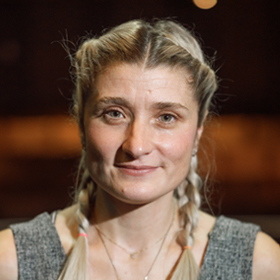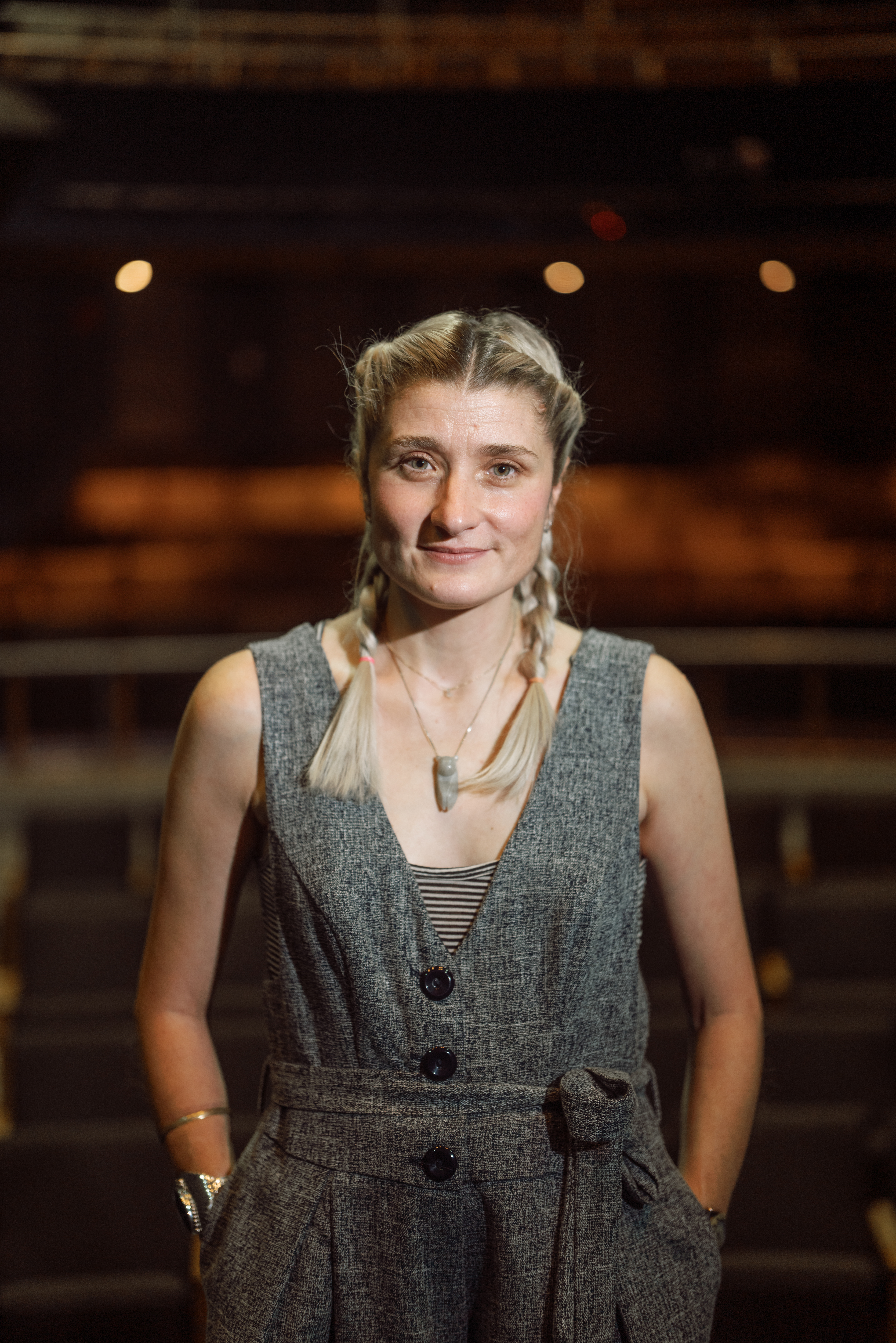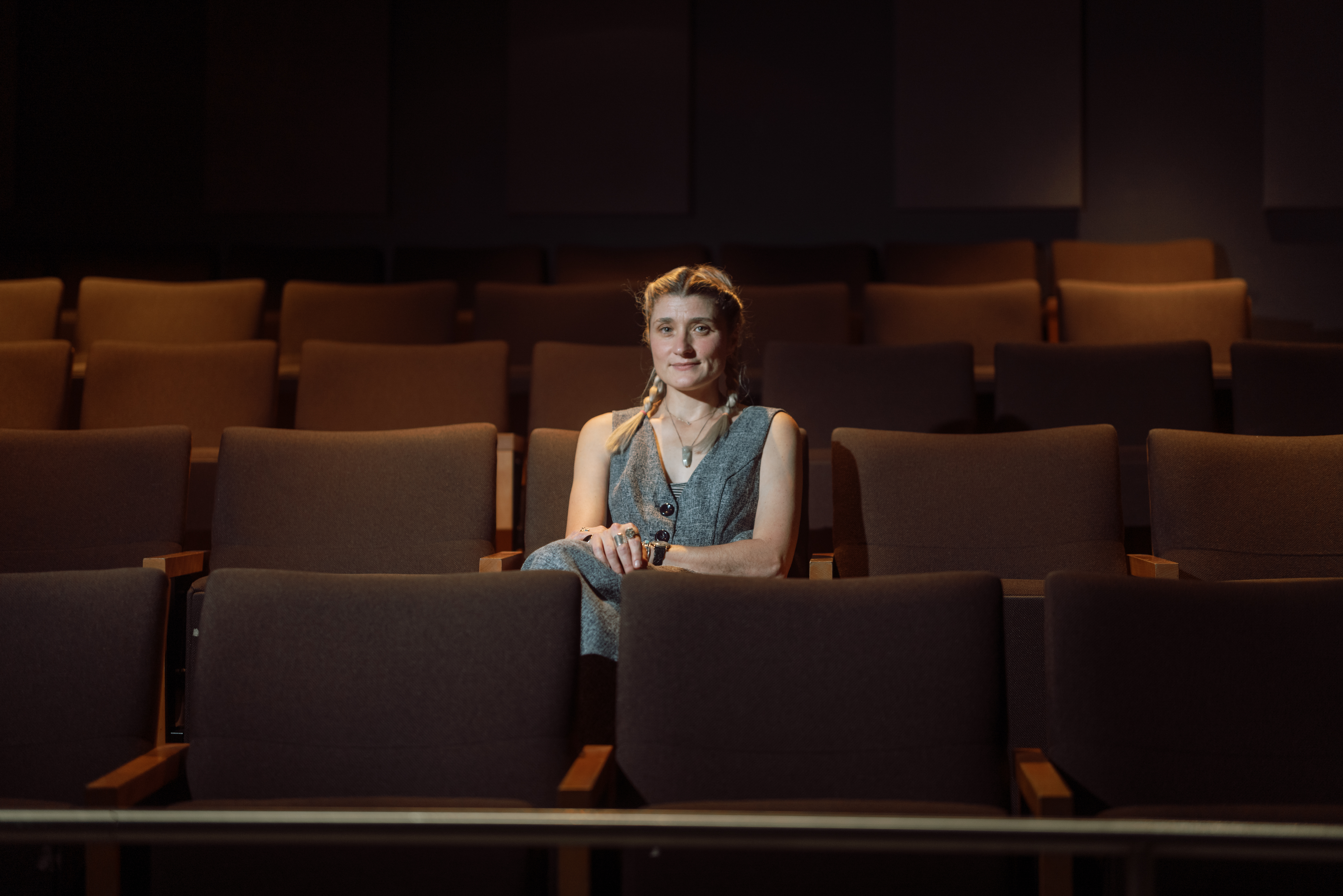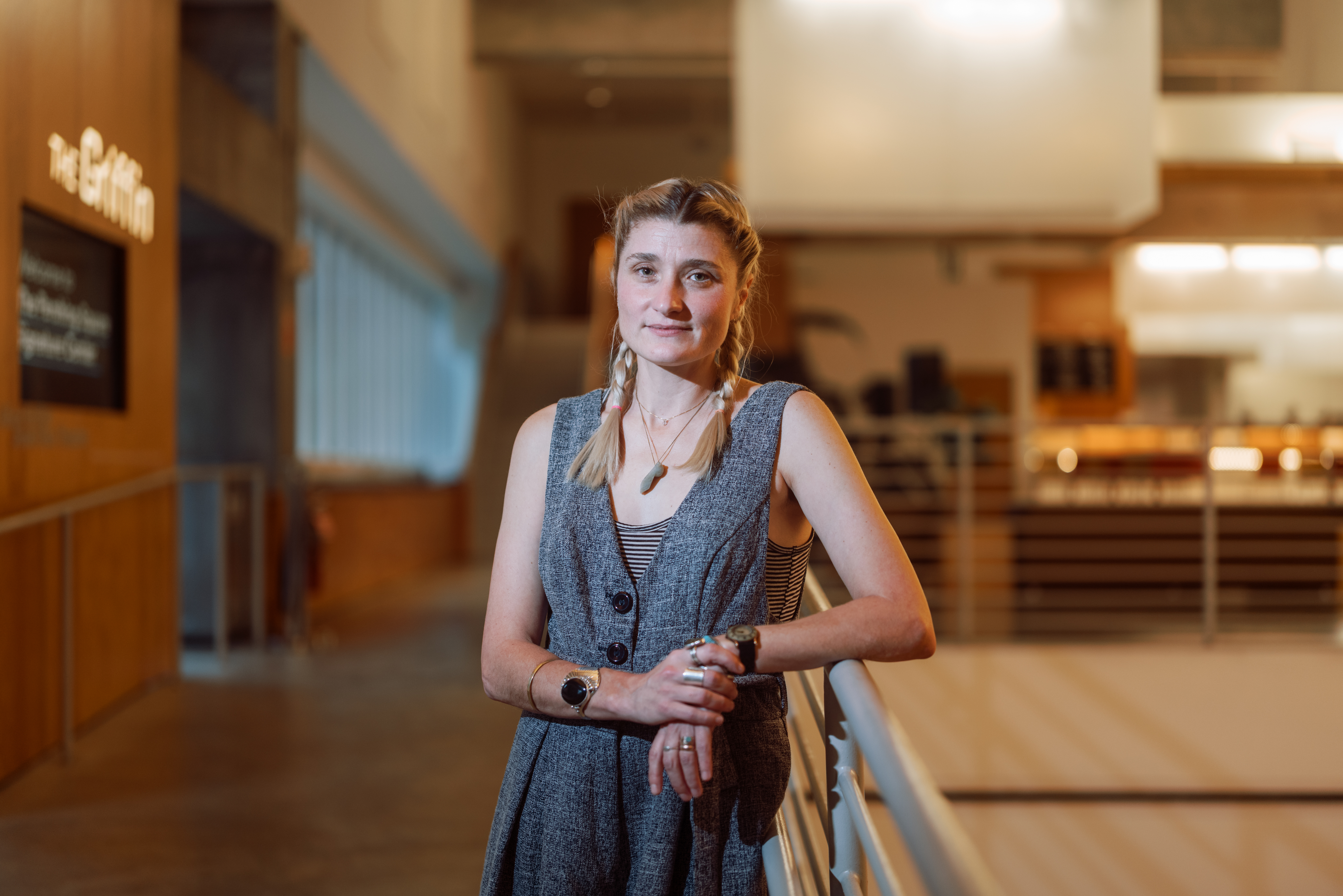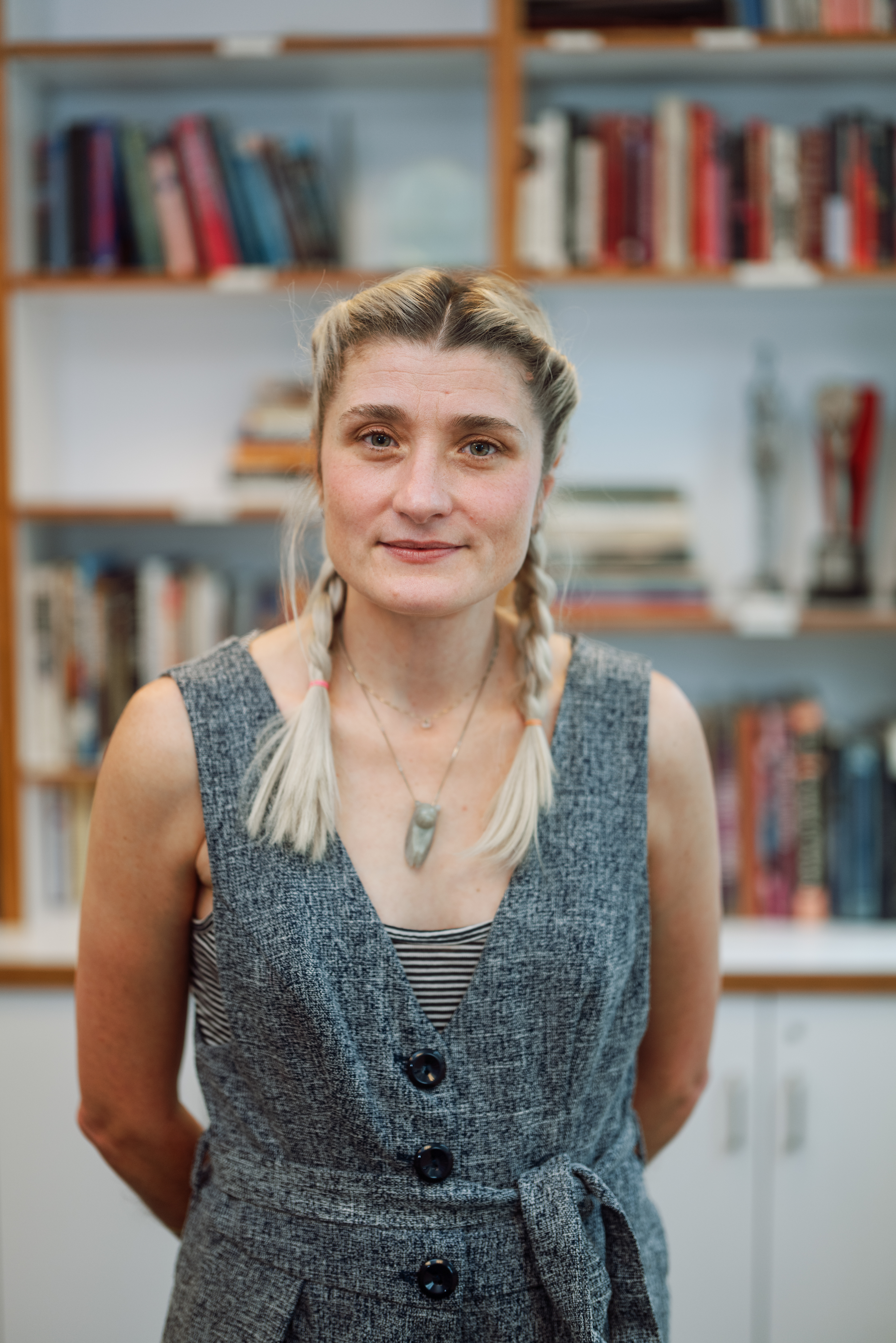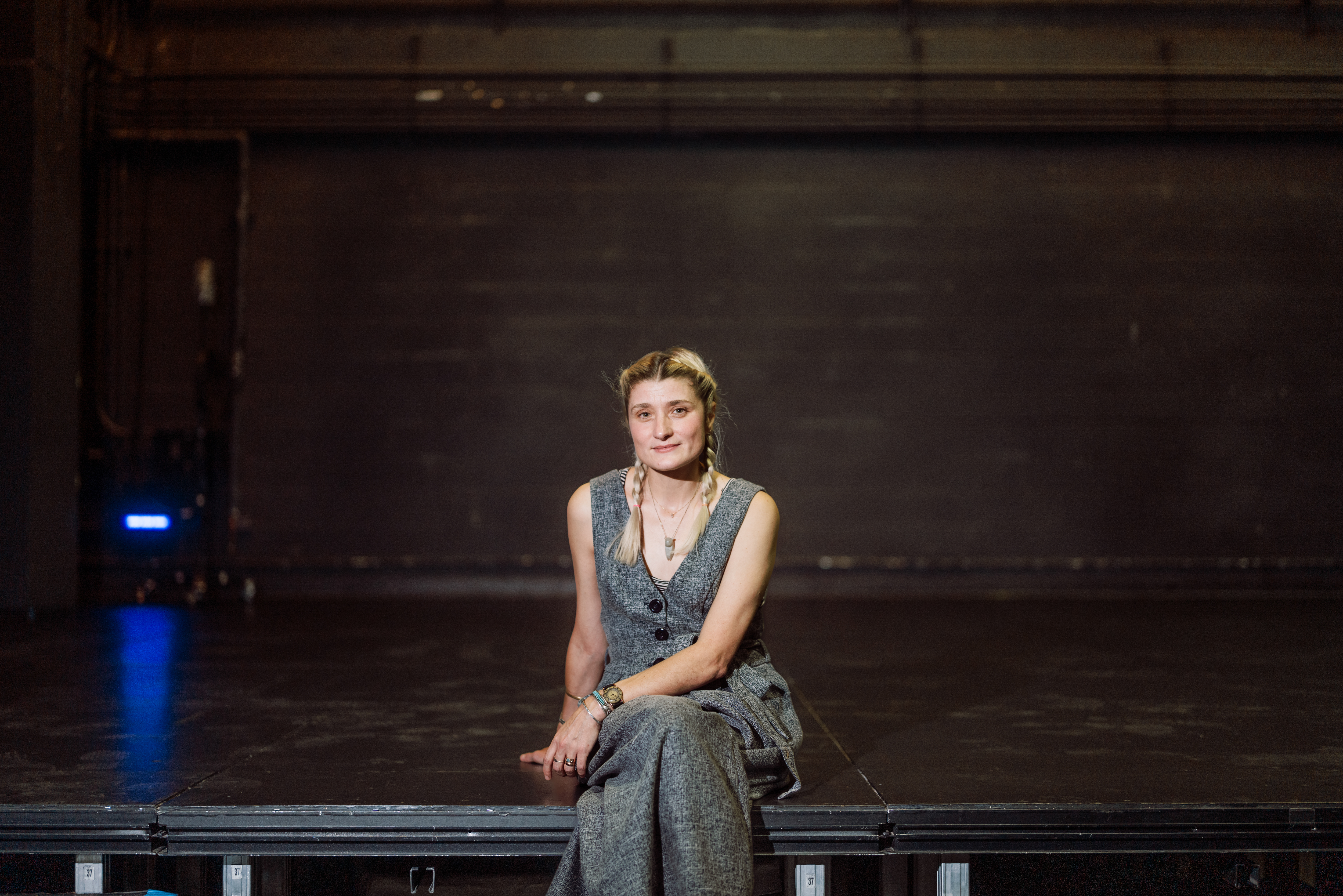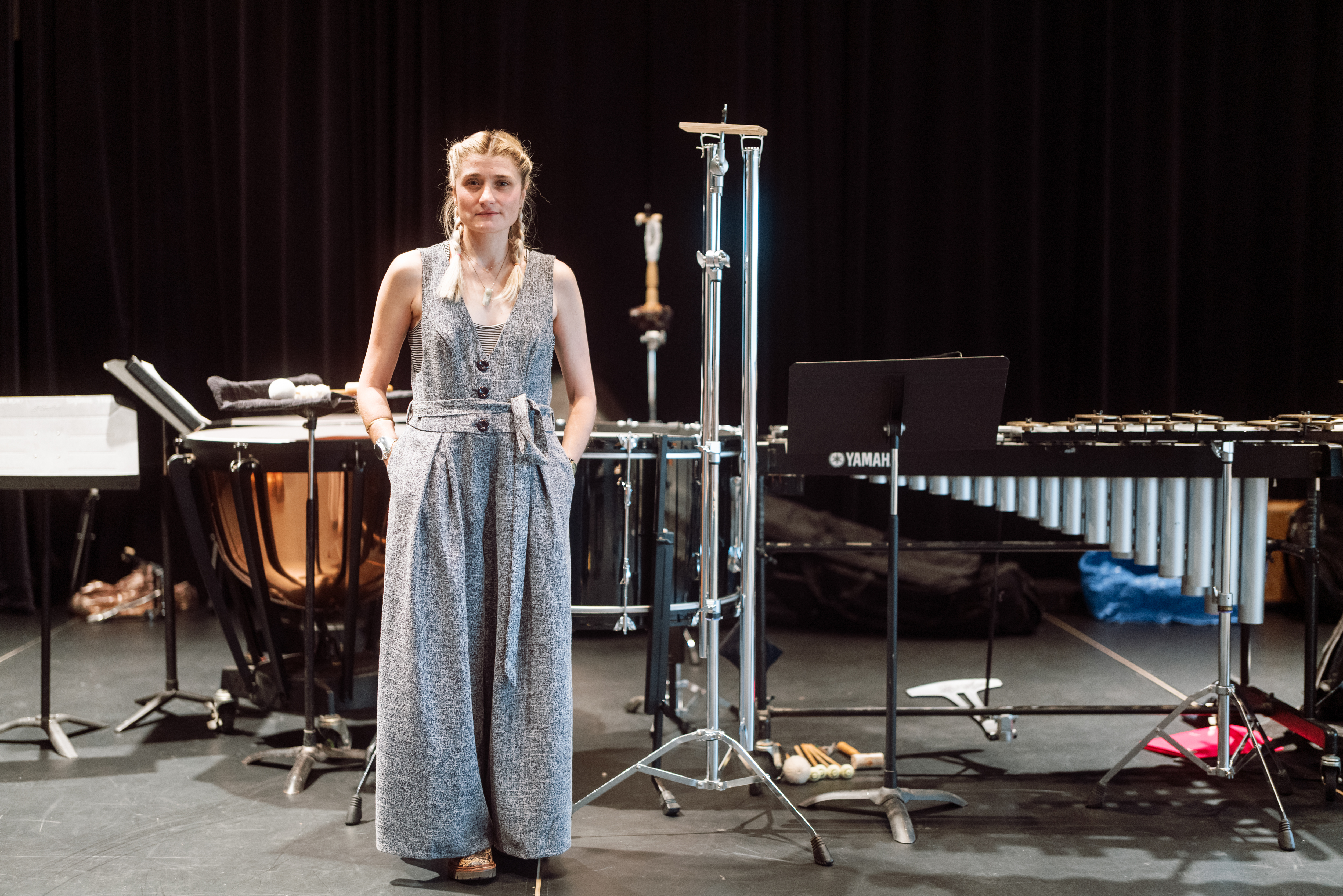About Heather's Work
Heather Christian is a composer, lyricist, playwright, and vocalist creating music theater performances that explore the possibility for the sacred and spiritual in our modern world. Christian’s musical sound reflects a panoply of influences—the jazz and blues of her Southern upbringing, Catholic and Baptist liturgical music, and European choral traditions—and her exceptional artistry with vocal arrangements and orchestration. Her immersive concert pieces range from the rousing to the ethereal, as she imbues choral singing with emotional urgency and interpersonal drama.
Animal Wisdom (2017) is an intimate and moving meditation on mortality, grief, faith, and ritual. Through story and song, Christian conjures ghosts and spirits that haunt her, such as a former occupant of her childhood home, her grandparents, and her godfather before illness and dementia. The piece concludes with a take on the Catholic requiem mass as a means of catharsis. The last 20 minutes are performed in complete darkness, and attendees are invited to contemplate and let go of the spirits, ghosts, and mysteries that haunt them. Oratorio for Living Things (2022) showcases Christian’s ability to weave personal and metaphysical concepts into something wholly new. With intricate and witty lyricism, she ruminates on the mystery of human existence and our place in the universe. She grounds these monumental concepts in the personal and everyday through juxtaposition with childhood memories and banal metrics of human life, such as how much time an average person spends doing things like sneezing in their lifetime. The piece is staged in the round, and performers move around and among the audience while maintaining complex vocal harmonies, resulting in a communal and awe-inspiring experience.
Christian’s recent work, Terce: A Practical Breviary (2024), is part of a planned eight-part project inspired by the canonical hours, which are masses cloistered nuns and monks sing throughout the day. Christian draws on the writings and words of medieval mystics Hildegard von Bingen and Julian of Norwich, as well as modern sources such as Potawatomi ecologist and educator Robin Wall Kimmerer, to celebrate the divine feminine as manifest in care for others and nature. Christian demonstrates the potential for music theater to be structurally and thematically complex as well as a space for inquiry, contemplation, and beauty.







